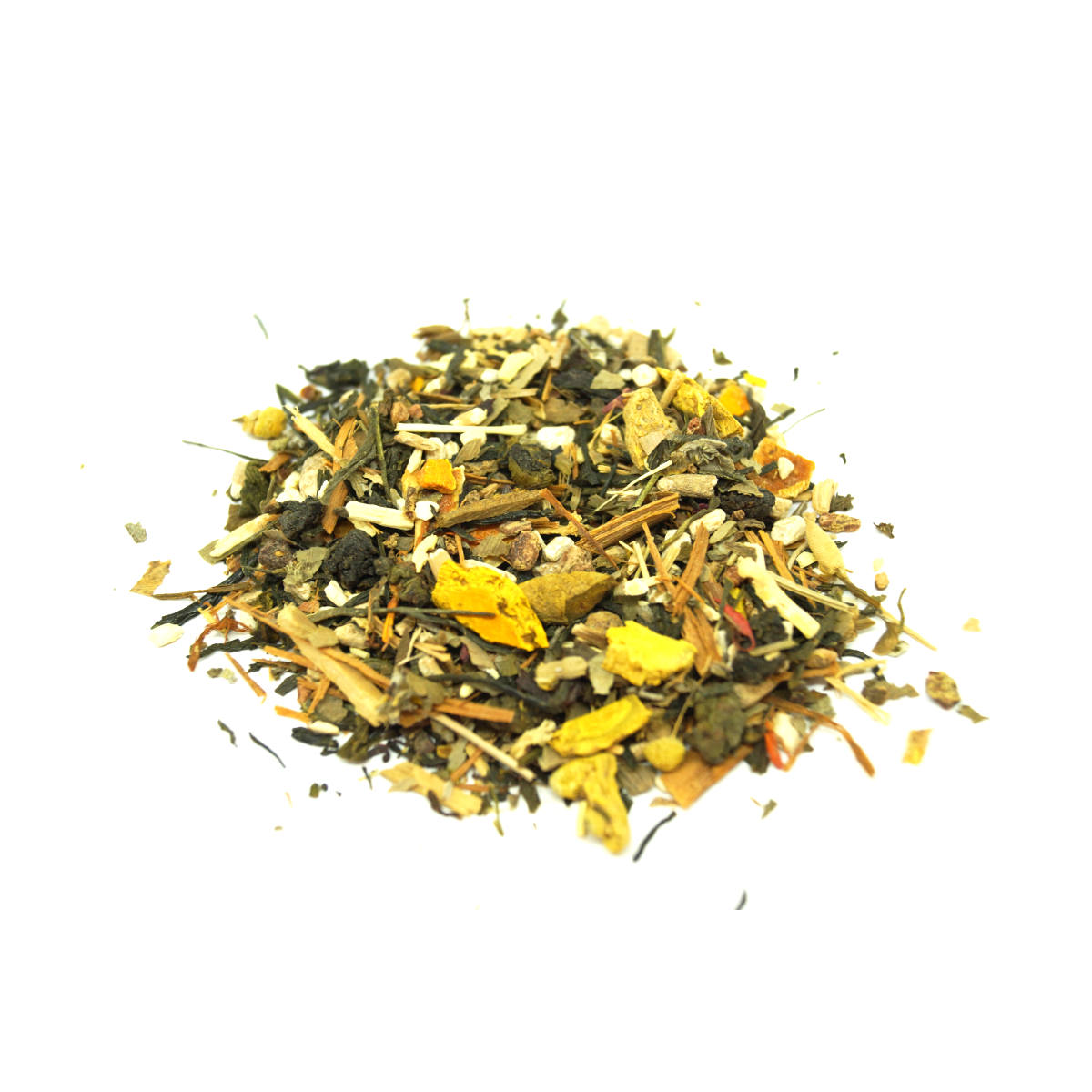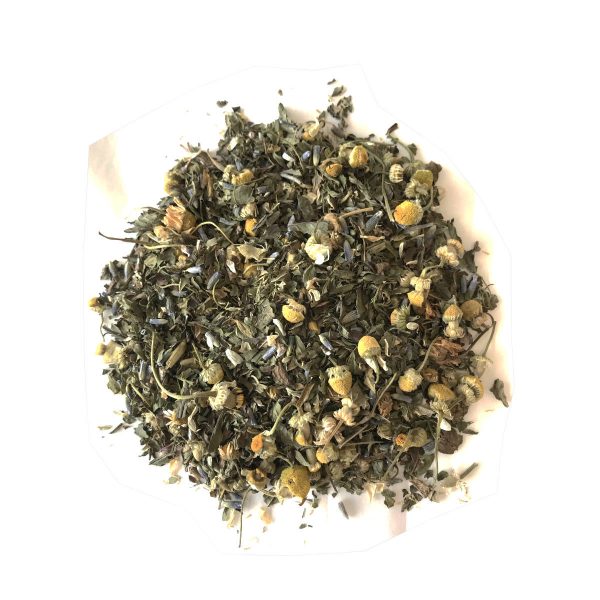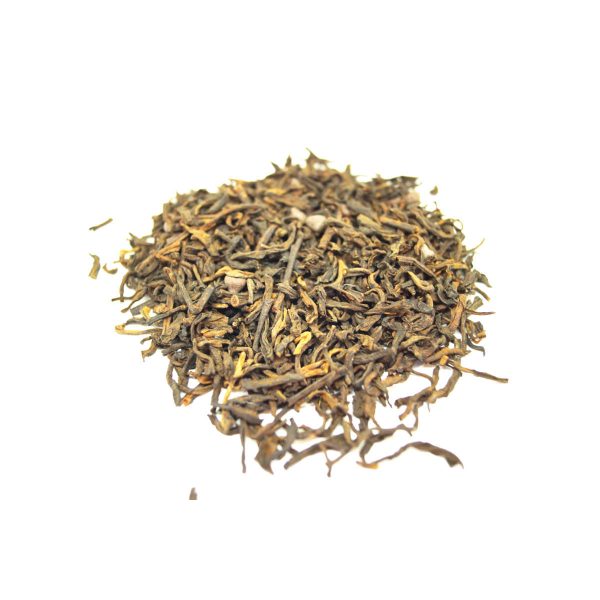With over 400 different kinds of loose tea that will exceed all tea lover’s expectations. You’re sure to find something you will love! All handcrafted by us in North Dakota.
Description
Blender’s Notes Alzheimer’s:
Steep Me Self Help Tea combinations are a wonderful way to get health benefits outside of the standard tea leaf. This combination of herbs has come about with the long and extensive research into how Alzheimer’s has evolved and the ability to diagnose early. Plus, this combination of herbs works well in prevention of this debilitating disease and keeping the brain healthy and strong while helping to enhance mood stability, rest, and energy levels. These herbs will provide nutrition and are useful for the treatment of complications that may result from this diagnosis.
Alzheimer’s disease is a brain disorder that gets worse over time. It is characterized by changes in the brain that lead to deposits of certain proteins. Alzheimer’s disease causes the brain to shrink and brain cells to eventually die. Alzheimer’s disease is the most common cause of dementia — a gradual decline in memory, thinking, behavior and social skills. These changes affect a person’s ability to function. About 6.5 million people in the United States age 65 and older live with Alzheimer’s disease. Among them, more than 70% are 75 years old and older. Of the about 55 million people worldwide with dementia, 60% to 70% are estimated to have Alzheimer’s disease. The early signs of the disease include forgetting recent events or conversations. Over time, it progresses to serious memory problems and loss of the ability to perform everyday tasks. Alzheimer’s disease causes difficulty concentrating and thinking, especially about abstract concepts such as numbers. Alzheimer’s disease causes a decline in the ability to make sensible decisions and judgments in everyday situations. Routine activities that require completing steps in order become a struggle. This may include planning and cooking a meal or playing a favorite game. Eventually, people with advanced Alzheimer’s disease forget how to do basic tasks such as dressing and bathing. Alzheimer’s disease – Symptoms and causes – Mayo Clinic
We based this tea on Chinese Ti Kuan Yin Oolong and Japanese Gyokuro Green tea because drinking at least one cup a day, yielded the most brain health benefits. Both green tea and oolong tea were found to be protective, but they also need to be brewed from tea leaves for the most effectiveness. The natural properties of tea are attributed to the bioactive compounds in the leaves, including catechins, theaflavins, and L-theanine. The flavonoids in the tea leaves have anti-inflammatory and antioxidant properties that prevent vascular damage in the brain. Steep Me Medicinal Mushrooms have been included because they contain special compounds that can stimulate the growth of brain cells: hericenones and erinacines and they have found that it may help protect against Alzheimer’s disease. Cat’s Claw is used today as an herbal treatment for Alzheimer’s Disease by helping remove the plaque and tangles buildup that is a part of the aging process. These areas of plaque and tangles are believed to play a role in the devastating degeneration of cognition and memory that is the symptomatic hallmark of dementia.
Gingko was added to promote healthy circulation and brain function. It has been found to be effective for reducing cognitive decline among aging adults, including memory loss and forgetfulness. Ginkgo aids the ability to concentrate and focus, and it can help stabilize symptoms of Alzheimer’s disease. This herb is great for depression which is a common thread for patients of this diagnosis. Rhodiola was added for its anti-inflammatory actions. It has displayed neuroprotective properties along with increasing learning abilities and memory. Some may even experience help in treating some general age-related difficulties such as mobility troubles. Lemon Balm and Egyptian Chamomile are used to improve mood and to assist relaxation. It can even help with cognitive function and reduced agitation for Alzheimer sufferers. Sage, Ashwagandha, and Ginseng are all used to help with and enhance cognition and circulation in the brain because of their strong restorative powers. Some studies show that Ginseng can even improve various dementia-related cognitive deficits. Finally, we added Turmeric because it is such an impressive anti-inflammatory, and many deficits can be caused by inflammation.
Features of Alzheimer’s:
- Leaves can be infused all day! (They will not get bitter)
- Lots of individual flavor based on the ingredients
- All Wildcrafted Herbs
- All Organic where Wildcrafted is not available
- Sweet and Minty ~ Smooth Taste
- Light Colour Cup of Tea
- Full of natural antioxidants and Low in Tannins and Very Hydrating
- Sample Size ~ 1 oz will make 8-10 ~ 16 oz teas
- Sealed Bag ~ 4 oz will make 32-40 ~ 16 oz teas
- Iced Tea ~ Always Double the amount of Tea for the same size cup!
- Per Serving ~ 1 tsp per 6 oz of H2O
- Recommend 3 tsp Per Day – re-steep leaves 2-3 times
- Caffeine: Medium
Ingredients: Steep Me Proprietary Organic and Wildcrafted blend of Chinese Ti Kuan Yin Oolong, Japanese Gyokuro Green, Steep Me Medicinal Mushrooms, Cat’s Claw, Gingko Biloba, Lemon Balm Leaf, Egyptian Chamomile Flowers, Sage Leaf, Ashwagandha Root, Ginseng and Turmeric Root
Alternatively, try our Matcha Green Tea OR Brain Health Micro~Nutrition Capsules OR Mental Sharpness Phyto~Nutrition Tea.
Not Safe for Pregnancy
Not Safe for Breastfeeding
NOTE: This/These claim(s) have/have not been evaluated by the Food and Drug Administration. The products offered by Steep Me Tea Apothecary -Franchisees – Wholesalers – Influencers or SteepMe.com are not intended to treat, cure, or prevent any illness or disease. If you have or suspect that you have a medical problem, consult with your physician for diagnosis or treatment. All gender specific blends are based on Gender Assigned at Birth. Use herbs as per instructions and always watch for any allergic reactions. You should always carefully read all product packaging and labels. Always consult your physician or health care provider before using any herbal products, especially if you have a medical problem. Steep Me Tea Apothecary and SteepMe.com and/or its proprietors assume no liability for any injury, illness or adverse effects caused by the misuse and/or use of the information or products presented
NOTE: When using Teas, Capsules, Tinctures and Micro-Nutrition to help with your ailment ~ please remember this is a marathon ~ we recommend an investment of time of at least 6 months to see positive change. Any gender specific blends are based on gender assigned at birth.
Latest Research from Stir Magazine April 2019
https://read.dmtmag.com/i/1098730-volume-8-number-2/23?m4=
Tea and Alzheimer’s
A recent study convincingly shows preventative and curative properties of EGCG found in high concentrations in green tea, on Alzheimer-like neurodegeneration in mice. It carefully builds on
more than a decade of research on EGCG. Its new and exciting contribution is to open up a pathway towards the use of a combination of today’s botanical compounds in reducing the risk of and spread of this dreadful malady rather than rely on a “magic bullet” pharmaceutical that at best will take ten years and $1.5 billion to develop. The study confirms that the rich store of antioxidants that green tea is packed with has potential medical powers. EGCG – and carrots– are part of prevention and possibly cure. The research study was carried out by a team from the University of California at Berkeley.
Additional information
| Weight | 4 oz |
|---|---|
| Size | , , |
Benefits
Tisane or Herbal Tea or Self-Help Tea
- Naturally Caffeine Free – unless specified
- Can be a powerful source of hydration
- Many self-help teas are based on multiple herbs giving a natural solution
- Great taste and can be steeped for long period of time
- Great options for kids who are learning to like tea
- Can taste like anything you want it to
When talking about the many types of tea, Tisane (Herbal Infusion) or Herbal Tea or Self-Help Tea is really not tea at all. It is made like a tea and all the same items are used to make it, but it does not contain the Camellia Sinensis Plant (unless stated), but is simply roots, flowers, leaves, and fruits put together is a combination that is made just like a tea. With that being said…the health benefits of a Tisane or Herbal teas are different. They can vary depending on the ingredients and combination of herbs so there are no blanket health benefits – just depends on the ingredients.
For many, the best part of Tisane or Herbal Tea or Self-Help Tea is the fact that it is caffeine free naturally. Of course there are herbs that can be added to change that. The most popular Herbal teas include Chamomile, Peppermint, Spearmint, and any combination of fruit blends or infusions. Our Self-Help Teas are simply supplemental herbal combinations to aid with an occasional ailment specific to what may be happening in your life. The teas are built to work and are not build with any specific flavorings. The blends are tested to the minimum requirements laid out by Steep Me A Cup of Tea. The taste provided is natural to the herbs present in the blend. No flavorings added.
This/these claim(s) has/have not been evaluated by the Food and Drug Administration. The products offered by Steep Me Tea Apothecary -Franchisees – Wholesalers – Influencers or SteepMe.com are not intended to treat, cure, or prevent any illness or disease. If you have or suspect that you have a medical problem, consult with your physician for diagnosis or treatment. Use herbs as per instructions and always watch for any allergic reactions. You should always carefully read all product packaging and labels. Always consult your physician or health care provider before using any herbal products, especially if you have a medical problem. Steep Me Tea Apothecary and SteepMe.com and/or its proprietors assume no liability for any injury, illness or adverse effects caused by the misuse and/or use of the information or products presented.



